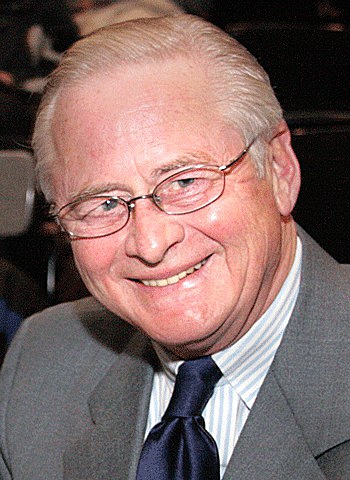Role confusion in wake of murders | Inside Politics
Published 12:00 pm Friday, June 17, 2016
Three murders over three days resulted in about 400 citizens packing City Hall a few weeks ago to vent their frustrations and fears at Mayor Jim Ferrell and the City Council.
Citizens sought immediate solutions. They wanted answers to some unanswerable questions and searched for blame. Some found it in police staffing, others found it in apartment-dwellers and those who receive housing assistance. They volunteered to form a committee against violence.
Then, a couple weeks later, fewer than 60 citizens attended a follow-up meeting at the Community Center. Why the drop-off in participation? What’s really going on behind the scenes?
There are several reasons for the reduced attendance, but high on the list is confusion by the City Council over their role in our new form of government.
The discussion of crime in Federal Way actually started at a neighborhood meeting at Saghalie Middle School prior to the murders. Many parents there expressed worry about crime and wanted to volunteer to help the city with a committee. But Police Chief Andy Hwang and Mayor Jim Ferrell showed numbers to the crowd to demonstrate crime was under control. The mayor and chief repeated statements made at earlier neighborhood meetings: If you’re not involved in criminal activity then you’re likely safe. They seemed dismissive of any committee, although they said they’d consider it.
After the murders, statistics didn’t matter – at least one of those murdered didn’t seem to have any involvement in criminal behavior. He was simply walking his dog. A city press conference may have unintentionally contributed to the heightened citizen concern when people were told not to go out at night or to go out only in groups.
What was actually needed was reassurance of our safety. Fear replaced confidence and took over the public debate.
City Council members pushed for an emergency council meeting to hear from the community, but they were not prepared for the dramatic overtones it had. The meeting lacked definition, direction or goals. It built a false sense of continued participation and action and provided no answers, and neither Ferrell nor Hwang could provide new information. Residents thought they would get to participate in halting crime in some meaningful manner through a committee, but the lack of planning was apparent. Even the name of the committee was still in flux.
And while the mayor and council wanted to call it a great meeting with the community coming together, the only real point of agreement was that citizens wanted the crime to stop. Opinions on how that should occur were varied. With its obvious lack of direction and leadership, an opportunity was missed (although the venting may have been therapeutic).
For that the City Council bears responsibility. They continue to misunderstand their new role, particularly when it comes to police activity. Council members were getting significant pressure from residents to “do something,” but under the “strong mayor” form of government they have no real power to deal with crime. They can only approve the mayor’s requests for staff and other budget items. Ferrell is the chief law enforcement officer now, and he delegates the responsibility to Hwang and the police department.
The last thing the mayor and police chief likely want is council members or the public telling them how to fight crime. But that became a main part of the evening.
The only advantage a citizens committee offers is providing potential political cover by pointing voters in different directions. Intended or not, the first meeting put a target on Ferrell and Hwang. Citizens almost never blame rank-and-file officers – they didn’t this time either. Council members kept asking pointed questions about recruitment, transfers, higher pay and bonuses that they should already know the answers to, which subtly aimed the crowd at the mayor and chief. While the crowd was split on how much to blame apartment-dwellers for crime, the majority of the audience was putting pressure on the mayor and council for a moratorium on apartments.
Then, last week, the council and mayor instituted an “emergency” ordinance for a moratorium on apartments. Not all housing – just apartments. Their denial of a connection between the murders, citizen pressure and the moratorium stretches believability. It’s politics; of course there’s a connection. Ferrell hinted several times that an apartment developer was checking on property. But if the mayor and council support affordable housing, as they say, and if there was no connection to the murders, then they should welcome an apartment developer, not institute a moratorium.
The second meeting at the Community Center had a significant decline in attendance, which was not a surprise. It also displayed the other “misunderstanding” of appropriate roles regarding the school district. Political messaging from City Hall has been that much of the local crime is from a few “bad kids,” pointing blame toward schools. Superintendent Tammy Campbell gave a forceful reminder that her job, and the district’s job, is education. They’ll work with police where appropriate, but fighting crime belongs to the mayor and police chief. She’s right.
More police probably wouldn’t have stopped the murders, and the council may have unwittingly led the mayor into a political trap. But Ferrell is there now, and voters are watching. Leaders are judged by how they respond in a crisis, but the time for real leadership has almost slipped away amid confusion, poor planning and politics.
Federal Way resident Bob Roegner is the former mayor of Auburn. He can be reached at bjroegner@comcast.net.





